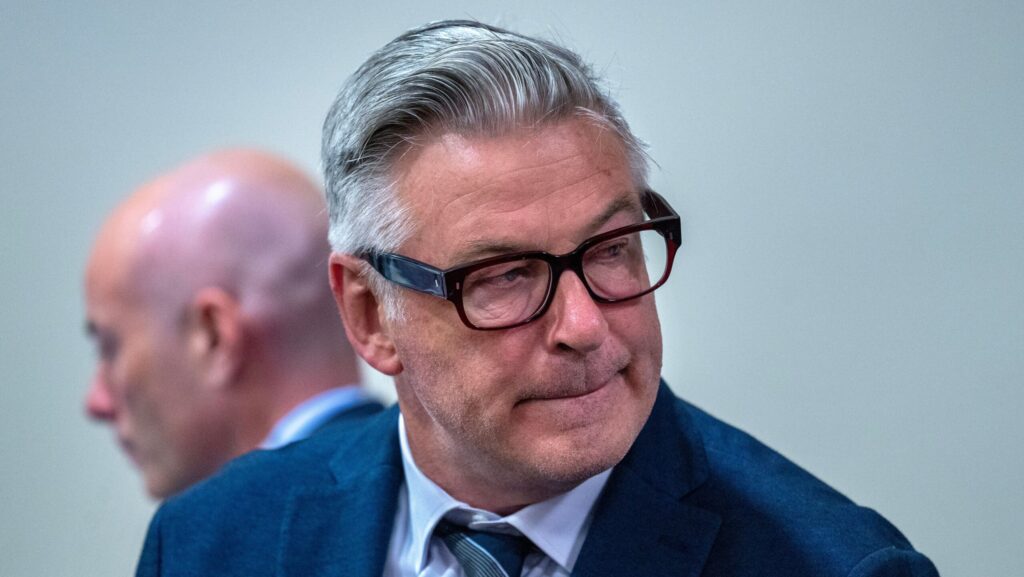Summary:
-
Judge dismisses involuntary manslaughter charge against Alec Baldwin due to prosecution’s failure to disclose critical evidence.
-
Prosecution’s request to reopen the case denied by Judge Sommer, who deemed evidence significant to Baldwin’s defense.
-
State plans to appeal ruling; Baldwin’s legal team asserts innocence and requests state to cover legal fees.
A judge has reaffirmed her decision to dismiss the involuntary manslaughter charge against actor Alec Baldwin, citing the prosecution’s failure to disclose critical evidence. Judge Mary Marlowe Sommer ruled on Friday that the prosecution’s request to reopen the case was unwarranted, maintaining that the evidence in question was significant to Baldwin’s defense.
In her ruling, Judge Sommer rejected the prosecution’s assertion that the withheld evidence was irrelevant. She noted that the prosecutor, Kari Morrissey, had merely reiterated arguments previously made, and any new claims should have been presented earlier in the proceedings. Additionally, Sommer stated that the motion to reconsider the dismissal was submitted too late for consideration.
“The Court concludes that the state does not raise any factual or legal arguments that would justify the grant of a motion to reconsider,” Judge Sommer wrote. “Therefore, the Amended Motion is not well taken and should be denied.”
In response to the ruling, Morrissey announced plans to appeal to a higher court. “The state intends to appeal the ruling,” she confirmed to Variety.
Baldwin was charged with involuntary manslaughter following the tragic death of cinematographer Halyna Hutchins on the set of the film Rust. The incident occurred in October 2021 at the Bonanza Creek Ranch in New Mexico, where Baldwin was rehearsing a scene when the firearm he was handling discharged, fatally wounding Hutchins and injuring director Joel Souza.
The case took a dramatic turn on July 12, when Baldwin’s defense team discovered a set of bullets that had not been disclosed prior to the trial. These bullets, found on set, appeared to match live ammunition, leading to questions about the integrity of the prosecution’s case.
ADVERTISEMENT
Morrissey contended that the existence of the bullets did not negate Baldwin’s guilt and, therefore, did not require disclosure under the law. However, Judge Sommer previously determined that the prosecution had deliberately withheld this evidence, violating the principles established in Brady v. Maryland, which mandates that prosecutors must share exculpatory evidence with the defense.
“If this conduct does not rise to the level of bad faith, it certainly comes so near to bad faith as to show signs of scorching,” Sommer stated at that time.
Following the dismissal, Morrissey filed a 54-page motion on August 30, seeking to dispute the judge’s conclusions and revive the case. However, the judge rejected the initial filing due to its length. Morrissey subsequently submitted a more concise, 10-page version of her motion, but it too was denied.
Baldwin’s legal team argued that there was no basis for the judge to reverse her earlier decision. They further requested that the state be ordered to pay Baldwin’s attorney fees, claiming that the actor was being subjected to harassment through the ongoing legal proceedings.
As Baldwin prepares to move forward, the case has drawn significant public attention, highlighting the complexities of legal proceedings in high-profile cases. The actor has maintained his innocence throughout the ordeal, asserting that he did not pull the trigger of the gun that discharged.
The ongoing developments in Baldwin’s case underscore the intricacies involved in the intersection of law, film production, and accountability. With the prosecution’s appeal forthcoming, the legal saga is far from over, and Baldwin’s future—both personally and professionally—remains uncertain as the legal battles continue to unfold.
ADVERTISEMENT
As Baldwin’s team and the prosecution prepare for the next steps, the implications of this case may resonate beyond the courtroom, raising questions about safety protocols and responsibility in the film industry. The tragic death of Hutchins has spurred discussions about the use of firearms on set and the measures necessary to prevent similar incidents in the future. The outcome of the appeal could have lasting effects on Baldwin’s career and the broader landscape of Hollywood productions.









